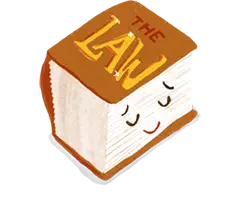Emergency management
This page contains different parts of laws about Emergency management, within the topic of Government and voting.

Important laws about Emergency management
Local Government Official Information and Meetings Act 1987
Regional councils must share information about natural hazards with local councils to keep you safe.
44C: Regional council must provide territorial authority with natural hazard information
Parole Act 2002
What happens with Parole Board decisions during an epidemic in New Zealand
13A: Procedure of Board during epidemic
Immigration Act 2009
Automatic extension of temporary visas during epidemics
78: Deemed extension of temporary entry class visa expiring during epidemic
Immigration Act 2009
Rules for re-entering New Zealand during emergencies or unexpected events
122: Special provisions relating to persons returning to New Zealand in emergency or other circumstances beyond their control
Immigration Act 2009
Changes to court appearances during epidemics
338: Modification during epidemic of requirements to bring people before District Court Judge
Immigration Act 2009
Warrants for detention last 28 days during epidemics
339: During epidemic certain warrants to have effect for 28 days
Immigration Act 2009
How detention time is counted during an epidemic
341: Calculation of consecutive period of detention for purposes of section 323
Immigration Act 2009
Sharing information to keep New Zealand safe from harm
303A: Disclosure of information to specified agencies for purposes of law enforcement, counter-terrorism, and security
Civil Defence Emergency Management Act 2002
Keeping You and Your Community Safe from Hazards and Emergencies
Civil Defence Emergency Management Act 2002
What the Civil Defence Emergency Management Act 2002 is about
1: Title
Civil Defence Emergency Management Act 2002
When the Civil Defence Emergency Management Act 2002 started: 1 December 2002
2: Commencement
Civil Defence Emergency Management Act 2002
This law helps keep you and your community safe from harm by planning for emergencies and managing risks.
3: Purpose
More laws about Emergency management
About this project
What is this project?
How do we do this?
Why is the law written like it is?
Should we use AI for this?
Is this information the actual law?
You can talk to Community Law or Citizen's Advice Bureau about your rights.
Remember that AI can make mistakes, and just reading the law isn't enough to understand how it could be used in court.




